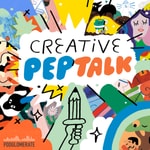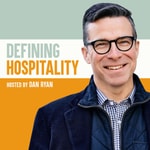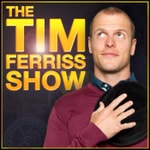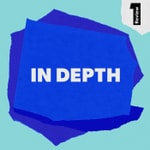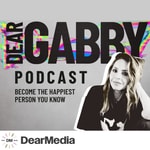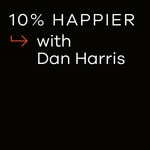Raise the Line – Details, episodes & analysis
Podcast details
Technical and general information from the podcast's RSS feed.
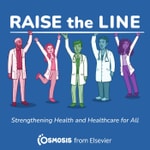
Raise the Line
Osmosis from Elsevier
Frequency: 1 episode/3d. Total Eps: 519

Recent rankings
Latest chart positions across Apple Podcasts and Spotify rankings.
Apple Podcasts
🇫🇷 France - medicine
31/01/2025#100🇫🇷 France - medicine
30/01/2025#77
Spotify
No recent rankings available
Shared links between episodes and podcasts
Links found in episode descriptions and other podcasts that share them.
See all- https://u24.gov.ua/
468 shares
- https://ifs-institute.com/
145 shares
- https://maps.org/
120 shares
RSS feed quality and score
Technical evaluation of the podcast's RSS feed quality and structure.
See allScore global : 53%
Publication history
Monthly episode publishing history over the past years.
Creating Moments of Trust Between Patients and Nurses: Dr. Philip Dickison, CEO of the National Council of State Boards of Nursing
Episode 518
jeudi 23 janvier 2025 • Duration 34:57
On this episode of Raise the Line, we're going to learn about the organization behind one of the most important exams in healthcare: the NCLEX, which is the licensing exam for nurses in the US. The influence of the test, which is overseen by the National Council of State Boards of Nursing (NCSBN), is hard to overstate because of its role in driving what nursing students and educators focus on. That was made evident when the heavily revamped Next Generation NCLEX, launched in 2023, placed much greater emphasis on clinical judgment than had been the case on past exams. “I think the education transformation prompted by the new exam is still going on. The launch was more of a catalyst than I expected,” says Dr. Philip Dickison, CEO of NCSBN, who was director of Health Professions Testing at Elsevier before joining the Council in 2010. Through administering licensing exams and serving as the collective voice of nursing regulators across the country, Dickison says NCSBN strives to achieve its ultimate goal, which is building public confidence in the competence of nurses. “I see our job at the Council as making sure there is a moment of trust between a patient and their nurse.” Join host Liz Lucas, Senior Content Manager for Nursing at Osmosis from Elsevier, as she explores the important work that goes on behind the scenes in the healthcare industry to help ensure public health and safety, and uncovers what Dickison learned as a military medic that still influences his work today.
Mentioned in this episode:
National Council of State Boards of Nursing
Reducing Language Barriers in Medical Education: Mohammad Kabakibi, Founder of Chain of Education and Dania Reina, E-learning Creator
Episode 517
jeudi 16 janvier 2025 • Duration 27:41
We have a special Raise the Line episode today that takes a look at some behind-the-scenes work happening at Osmosis from Elsevier to expand the reach and impact of our educational content, which is now being used by learners in nearly 200 countries. Over the past year, dozens of volunteers have been hard at work translating over 100 Osmosis videos into Arabic while simultaneously researching whether these translations increase student engagement and comprehension, and improve educational equity. Our host, Dr. Amin Azzam -- who has played an oversight role in this project -- is joined by two other key members of the team: Mohammad Kabakibi, the founder of Chain of Education, an online learning platform he developed while in school at Lebanese American University; and Dania Reina, who is an e-learning creator and a pharmacist from Brazil. “In the beginning, we had one or two volunteers, but now we have more than fifty. This is huge and this only happens because we are building this for us and to leave for other healthcare professionals who will hopefully keep it going,” says Reina. Research has shown significant learning improvement among video watchers and as a bonus, the people doing the subtitles report enhanced knowledge of the subjects they work on. These positive outcomes have spurred Kabakibi to look for other opportunities to make an impact, including helping Arabic speakers learn how to do research in English. “I believe one of the legacies that this project will carry through me will be my continuous mission in reducing barriers when it comes to healthcare and education,” he shares. Check out this inspiring episode to learn about other offshoots of the project, how this work supports lifelong learning, and why AI is not up to the task.
Mentioned in this episode:
Osmosis Video with Arabic Translation
Providing Physical Therapy Services in the Home: Palak Shah, Co-Founder and Head of Clinical Services at Luna
Episode 508
jeudi 24 octobre 2024 • Duration 26:20
We've learned quite a bit on Raise the Line about the growing trend of providing medical care in the home, particularly as it relates to services enabled by advances in remote monitoring technologies. In this episode, we’re adding to that base of knowledge by focusing on what's happening with in-home physical therapy services. Our guide will be Palak Shah, PT, the co-founder and head of clinical services at Luna, a leading provider of in-home physical therapy that has completed one million patient visits in twenty-eight states since its founding in 2019. “Our patients appreciate this option so much because there are so many hurdles to access -- time constraints, ability to come to a clinic, the cost of travel, the dependency on family and caregivers -- and Luna eliminates all of that,” Shah tells host Michael Carrese. The company has also focused on convenience for its 3,000 licensed providers through developing an app that integrates documentation, care coordination, billing, scheduling and other administrative tasks. But can you actually provide high-quality care for a full range of patient needs in what might often be small spaces? Based on data from its patient population in Southern California, Shah says Luna found that 87% of people can be seen in the home because large pieces of equipment are not needed to provide the required treatments. Tune in to learn how the services are paid for, how the system works for the hospitals and practice groups the company partners with, and what Luna’s providers say about working in the home environment.
Mentioned in this episode: Luna
Capturing Cancer Signals to Aid Early Detection - Dr. Josh Ofman, President of GRAIL
Episode 419
mercredi 27 septembre 2023 • Duration 33:43
The value of early detection is perhaps greater for cancer than many other diseases because it remains the second leading cause of death worldwide. On this episode of Raise the Line we're going to learn about a new testing approach that leverages genomic technology and machine learning to detect signals circulating in the blood across more than 50 types of cancers -- far beyond the number currently screened for -- and helps physicians target locations for diagnostic evaluation. “We can look at this epigenetic pattern on very specific regions of the DNA and say this is only seen in cancer, and make a call,” says Dr. Josh Ofman, the president of GRAIL, a spinoff of the genomic sequencing company Illumina. “We have an opportunity now to dramatically improve the number of cancers found in the population through early detection. We could reduce the death rate over the next five years by almost forty percent,” he tells host Shiv Gaglani. Tune in to find out who qualifies for the test, what obstacles lie ahead and how GRAIL is working to educate physicians about this potentially powerful new option
Mentioned in this episode: https://grail.com/
Science in the Service of Furthering Mental Health - Dr. Joshua Gordon, Director of the National Institute of Mental Health
Episode 418
jeudi 21 septembre 2023 • Duration 37:28
On this episode of Raise the Line, we have the privilege of hearing from one of the nation's top healthcare leaders, Dr. Joshua Gordon, who is the director of the National Institute of Mental Health. In that role, he oversees an extensive portfolio of basic and clinical research that seeks to transform the understanding and treatment of mental illnesses, paving the way for prevention, recovery and cure. “Our main role is in trying to make sure that good science is conducted in the service of furthering public mental health,” he tells host Shiv Gaglani. One area of NIMH research that gets less attention than breakthrough medicines is how to make it easier for healthcare systems and practices to adopt best practices and proven treatments. This not only helps improve patient outcomes, but Gordon says it is one element in addressing feelings of a lack of effectiveness that contribute to provider burnout. “If we can increase individuals’ efficacy by ensuring that they are trained in evidence-based approaches, and continue to make new treatments available to help those who aren't responding to the old ones, that's one way we can do that.” This is a rare opportunity to hear from a federal agency executive on some of the most pressing and interesting issues in healthcare including the shortage of providers, health equity, social determinants of health, telemedicine and the potential for psychedelics to treat mental health problems.
Mentioned in this episode: https://www.nimh.nih.gov/
The Crucial Role of Psychedelic Therapy Guides - Mary Cosimano, Director of Guide and Facilitator Services at The Johns Hopkins Center for Psychedelic and Consciousness Research
Episode 417
mercredi 20 septembre 2023 • Duration 31:32
The Crucial Role of Psychedelic Therapy Guides - Mary Cosimano, Former Director of Guide and Facilitator Services at The Johns Hopkins Center for Psychedelic and Consciousness Research
All of the promising research into the potential benefits of psychedelics in mental health treatment depends on having skilled professionals who can create a therapeutic alliance with participants and guide the sessions in which the compounds are administered. We could not have a betterRaise the Line guest for understanding this role than Mary Cosimano, LMSW, former director of Guide and Facilitator Services at the Johns Hopkins Center for Psychedelics & Consciousness Research. Since the genesis of psychedelic research there two decades ago, she has conducted over 500 sessions herself as well as serving as a research coordinator. In this fascinating conversation with host Shiv Gaglani, Cosimano discusses how she prepares for and processes the often-taxing sessions, the common themes that emerge from participants, and what qualities effective guides need to have. On that point, she thinks the role needs to be open to chaplains, nurses, hospice care workers, and others with the right combination of experience and personal qualities, not just to licensed medical personnel. “What’s as important is who they are, what they've done in their life and career, how much work have they done on themselves, do you feel comfortable with them?” This is a fascinating look into the heart of psychedelic-assisted therapy and the meaningful experiences participants can have when they are in the right hands.
Mentioned in this episode: https://hopkinspsychedelic.org/
Partnerships Are Key to Building the Future Healthcare Workforce - Geoffrey Roche, Director of Workforce Development in North America for Siemens Healthineers
Episode 416
jeudi 14 septembre 2023 • Duration 25:30
“We're really heading to a cliff when it comes to those expressing interest in healthcare careers,” cautions today’s Raise the Line guest Geoffrey Roche, director of Workforce Development in North America for Siemens Healthineers. Unfortunately, this drop-off in interest is happening as statistics on the current and future shortage of healthcare workers seemingly get worse by the day. One strategy the veteran hospital administrator and educator advocates is partnering with the K-12 system to provide early exposure to healthcare careers. “We have to show young people what the possibilities are. We've got to visually help an individual understand ‘this is what your career ladder could be.’ It could also help, he tells host Rishi Desai, if young people understood how much healthcare technology is powered by the same type of systems as video games. Citing the concerns that other industries do a better job of recruiting young people, Roche urges all healthcare organizations to have deep working relationships with educators. “If you’re not working with an academic institution to look at your needs of today and tomorrow proactively, strategically and tactically, then you're behind.” The good news is Roche sees examples of community partnerships and creative approaches to certification and apprenticeships that could yield results. Tune in to find out how bringing healthcare and education together at all levels can help fill the daunting gap in clinical and non-clinical staff that confronts our healthcare system.
Mentioned in this episode: www.siemens-healthineers.com
The Power of Active Learning and Engaged Learners - Dr. Amin Azzam, Faculty Engagement Coordinator at Osmosis
Episode 415
mercredi 13 septembre 2023 • Duration 28:56
Active and fun are rarely the first words associated with medical education, but today’s Raise the Line guest, Dr. Amin Azzam, contends learners get the most value when they can engage with their education rather than passively receive knowledge. As Azzam relates to host Hillary Acer, the vice president of Strategic Operations at Osmosis, he remembers first seeing the power of active learning while observing a class of med students as a psychiatry resident. “I sat behind a one-way mirror and watched these students leading their own small-group learning and it was just palpably infectious how excited they were to learn medicine.” In the ensuing years, Azzam has happily been utilizing and developing active learning strategies as a professor at three Bay Area universities and in his role as Faculty Engagement Coordinator at Osmosis, one of many key roles he has played as a longtime team member. One of his most impactful creative strokes was creating the first medical school course dedicated to improving the quality of health information on Wikipedia, both providing a unique learning experience and improving health content that has been viewed 88 million times by people around the world. Speaking of global impact, he’s also been instrumental in Osmosis initiatives to facilitate learning by medical students in war-torn Syria and refugees seeking medical care. Check out this lively and fascinating look at learner-centric education and the power of providing opportunities for students to do social good while learning.
Mentioned in this episode:
Forging a New Approach to Menopause Care - Dr. Anna Barbieri, Founding Physician of Elektra Health and Assistant Clinical Professor, Mount Sinai Health System
Episode 414
jeudi 7 septembre 2023 • Duration 30:53
“When we say ‘treatment for menopause,’ it implies that menopause is a disease, when really it’s a normal and expected time of life,” says Dr. Anna Barbieri, an integrative medicine physician and specialist in menopause certified by the North American Menopause Society. That attentiveness to word choice is reflective of a new perspective that’s driving Dr. Barbieri and her peers to see menopause more holistically than in the past and to forge new approaches to the care they provide. "Menopause care is not checkbox medicine. We have to work with our patients individually," Barbieri shares with special guest host Dr. Deborah Enegess, herself a practicing gynecologist as well as a clinical content writer for Osmosis. A personalized approach involves tailoring care plans that take exercise, nutrition, sleep, stress management and other lifestyle and psychological factors into account in an effort to help patients feel better in the short term and longer term. Providers also have to contend with a shift in long-held thinking about the use of hormone therapy and a bewildering array of supplements that are touted as effective remedies for various symptoms. To help sort through all of this complexity, new resources have come on the scene in recent years, including the digital platform Elektra Health -- of which Barbieri is the founding physician -- that describes its mission as “smashing the menopause taboo.” Check out this engaging exploration of what looks to be a promising time for women in search of individualized, integrated and informed care during their menopause journey.
Mentioned in this episode: https://www.elektrahealth.com/
Understanding the Therapy Part of Psychedelic-Assisted Therapy - Dr. Mary "Bit" Yaden, Assistant Professor of Psychiatry and Behavioral Sciences at Johns Hopkins University
Episode 413
mercredi 6 septembre 2023 • Duration 52:28
We've been careful on Raise the Line to use the term psychedelic-assisted therapy because, as we've heard from previous guests, these compounds are best administered in the context of a therapeutic relationship in a safe, controlled setting. Today, we're going to focus on the therapy part of the equation with Dr. Mary “Bit” Yaden, an assistant professor of Psychiatry and Behavioral Sciences at Johns Hopkins University. Yaden contends that administering a two-to-three-month course of psychedelic-assisted therapy will be vastly different for professionals used to conventional mental health treatments that involve taking medications daily and which might or might not include long-term courses of talk therapy. “This is taking a pill twice, and participating in psychotherapy is integral to its success. This is not ‘maybe I feel better today taking an SSRI, but I'm not quite sure.’ This is deliberately taking a medicine that changes your mental state in a way that is not ordinary,” she tells host Shiv Gaglani. And while she’s encouraged by growing evidence that psilocybin and other compounds are showing therapeutic promise, she’s concerned about history repeating itself, as reflected in a 2021 article in JAMA Psychiatry she co-authored entitledPsychedelics and Psychiatry, Keeping the Renaissance from Going Off the Rails. “I think a great tragedy could be if there is so much overblown hype that we become disenchanted too early or that we start allowing for practices that are not safe.” Don’t miss this highly engaging and instructive conversation on the full picture of psychedelic-assisted therapy.
Mentioned in this episode: https://hopkinspsychedelic.org/
